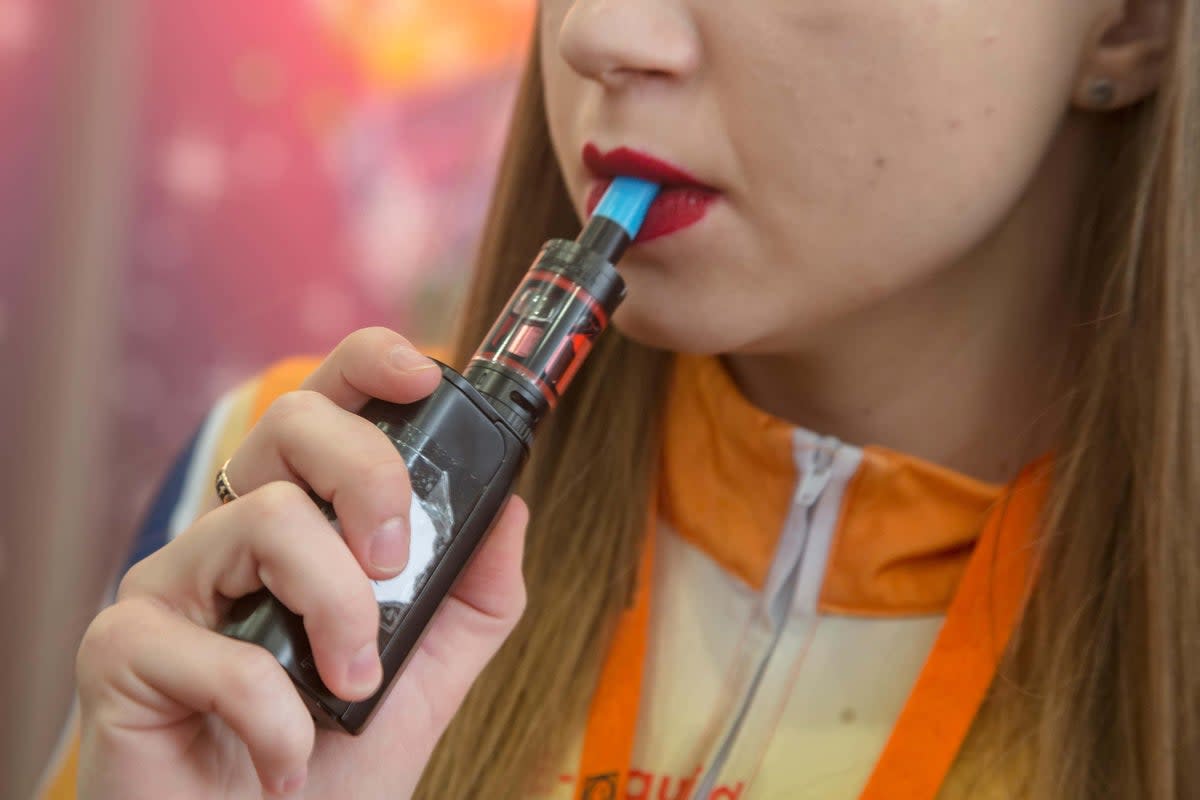Met Police warn of ‘dangerous new threat’ of spiking using vapes laced with spice

Vapes laced with spice are being used to spike people in what police have labelled a “very dangerous new threat”.
The Metropolitan Police issued a fresh warning over the devices at an event about tackling spiking this month as reports increased by 13 per cent in 2023, with the number of allegations made reaching 1,383.
As vapes surge in popularity, the force revealed it is increasingly common across devices that contain chemicals other than nicotine, including THC, the psychoactive found in cannabis, and spice, the street name for the class of drugs known as synthetic cannabinoids.
The latter are substances made in labs designed to mimic the effects of cannabis, which can cause chest pains, seizures, extreme anxiety and suicidal thoughts. They have been widely consumed in UK prisons for more than a decade, while The Independent revealed earlier this year that schoolchildren were being offered vapes spiked with spice that were being distributed via Snapchat.

Speaking to reporters at Scotland Yard, Met forensic consultant and national lead for Operation Lester Dean Ames warned: “Many of you are aware of the rise of vapes. They are very much a new threat. They should contain nicotine, but they do contain THC – and more recently we’ve seen vapes that contain what is colloquially known as spice. People could be offered a vape not knowing what they’re about to inhale. Vapes are very dangerous.”
The force revealed it had discovered more than 100 different types of drugs being used to spike people in the capital within the last three years.
Following the surge in spiking cases reported in freshers’ week at UK universities in 2021, which included the use of needles, Mr Ames said it developed a quicker testing service that revealed the “sheer variety” of chemicals being used by perpetrators, from prescription to street drugs.
Operation Lester was also established in 2021 to coordinate the police response to spiking across the country, a crime described by detective chief superintendent Angela Craggs as “very complex to investigate”. Some drugs used for spiking leave the body in less than 12 hours, so police say early reporting gives them the best opportunity to investigate what has happened.

DCS Craggs said an average of 114 spiking allegations are made in the capital every month, with 60 per cent by women, while only 70 arrests were made in the whole of 2023 – and the Met believes it is being hugely underreported.
Deputy assistant commissioner for local policing Helen Millichap, who is the Met’s lead for violence against women and girls, said: “Our data is only as good as people feeling confident in venues and venues being really encouraging in calling the police and trusting that we will do everything possible to help somebody in these circumstances.”
Ms Millichap admitted the force understands and accepts the reasons victims might not report getting spiked to the police. She said: “They might not want to call us. We understand that, we understand the complex reasons behind that, we accept that.”
According to a Drinkaware survey of 10,000 respondents last year, Karen Tyrell, the charity’s CEO, said 2 per cent reported having been a victim of spiking over the previous 12 months, equivalent to 900,000 people across the UK. Ms Tyrell added that gender and sexual minorities are almost twice as likely to be victims.
However, Dawn Dines, the CEO and founder of Stamp Out Spiking, said a national poll conducted by her charity found 97 per cent of survivors did not report getting spiked to the police. “When we delved into that to find out why,” Ms Dines said. “They were ashamed, they were embarrassed, some of them who did report it were accused of being drunk so obviously that put them off a bit. We’ve also got recreational drug users who are also obviously frightened to come forward.”

Rosie Smith, who was studying at the University of Manchester at the time, previously told The Independent she was spiked at a nightclub while visiting her sister in Durham in October 2022.
The 20-year-old said: “After only two drinks I lost all control of my limbs and ability to talk. I was trapped within my own body and left powerless.
“My mental health was dramatically impacted after I was spiked and I didn’t report the incident to the police due to many other students I know not being believed or being turned away.
“Spiking is a terrifying and sadly prevalent crime which has a long-lasting impact on the victim, family and friends.”
Ms Tyrell said a non-judgemental culture, such as advice and attitudes, is key to combatting spiking, including in encouraging survivors to make a report to the police. “It’s really important not to underestimate how terrifying it can feel for people,” she said. “Making sure as a society that we’re bringing this conversation out into the public… having these open conversations is important as step one.”
A spiking incident can be reported anonymously and on behalf of someone at Report Spiking Metropolitan Police, with no time limit.

